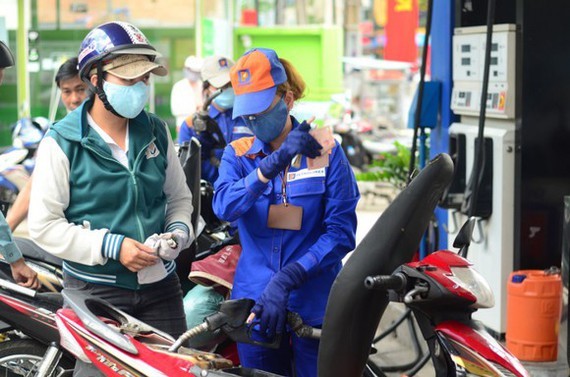
The retail petrol price rise of nearly VND1,000 (US$0.044) per liter from February 11 resulted in a corresponding increase in the Consumer Price Index (CPI) of January 2022 by 0.19 percent and 1.94 percent compared to December and January 2021, respectively. The core inflation rate also grew by 0.66 percent.
The most affected industries are those consuming a large volume of fuel like aquaculture, freight and passenger transport.
That could become an obstacle when the Government is trying to resume tourism, manufacturing, and transport activities to the extent that some expert commented the policy to decrease VAT tax by 2 percent for economic growth stimulus might be useless.
This frustrating state demands a flexible solution in administrating retail fuel prices in order to successfully control goods price, especially commodities’ ones.
The Ministry of Industry and Trade reported that the country can answer 75 percent of the domestic fuel demand and needs to import the rest. Furthermore, the incident at Nghi Son oil refinery in Thanh Hoa Province is only temporary, and it will restart its full capacity from March 15, along with the capacity rise of other refineries.
Economic experts suggested that the Vietnam should establish a national fuel reserve and an updated fuel database to ensure supply stability for a long term when the world is becoming more and more insecure. In addition, the Fuel Price Stabilization Fund should be maintained to minimize price pressure when the global petrol price increases. This fund must be transparent and flexible to be an effective tool of the Government.
At present, each liter of fuel is subject to various taxes, accounting for 55-60 percent and 35-40 percent of the retail petrol and oil price, respectively. Adding to that is the fixed environmental protection tax of VND4,000 ($0.18) per liter. These have greatly pushed up the retail price. It is now considered to cancel either environmental protection tax or excise tax since gasoline has become an essential item.
The Government is also recommended to strictly control the prices of other essential commodities like electricity, water, and telecommunications in such a sensitive time now so as to avoid simultaneous price rises, which will negatively affect the inflation rate, economic recovery state, and growth rate stimulus.
According to Decree No.95 by the Government, fuel prices are adjusted flexibly each 10 days in accordance with the global ones. Therefore, it is possible at certain time to reduce or temporarily halt taxation of environment protection or import-export to aid related industries to lessen price rise pressure.
























